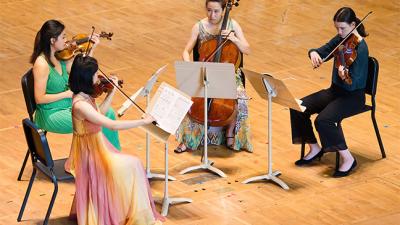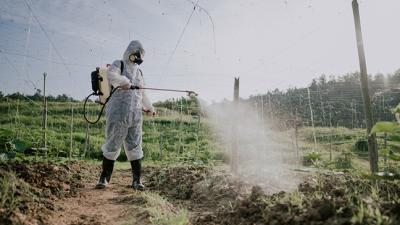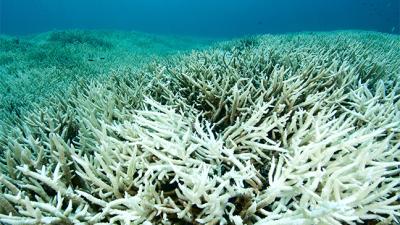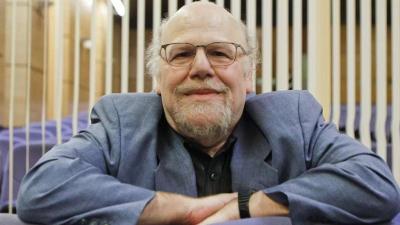AI as Force Multiplier
Earth’s Disastrous 10th Tipping Point Has Been Identified
Tanglewood Music Center’s Fromm Quartet To Perform at EMPAC at RPI
Presented by Rensselaer Polytechnic Institute, Storytelling and Memory will be performed by the Tanglewood Music Center’s Fromm Quartet at the Curtis R. Priem Experimental Music and Performing Arts Center (EMPAC) at Rensselaer on Friday, August 2 at 7 p.m. Free admission is available by registering at https://webforms.rpi.edu/storytelling-memory-tanglewood-music-center.
Rensselaer Researcher Draws Insights from COVID-19 to Inform Improved Health Care in Times of Crisis
Among the many challenges that the COVID-19 pandemic presented, disruptions in health care were among the most impactful. The pandemic was large-scale, lasted over two years, and resulted in millions of hospitalizations and 1.2 million deaths in the United States alone. Meanwhile, routine medical services were affected by the pandemic: Patients avoided health care visits for fear of contracting the virus; stay-at-home policies left patients without routine care; and there was a limited supply of services.
Researchers Find That Frogs Can Quickly Increase Their Tolerance to Pesticides
Although there is a large body of research on pests evolving tolerances for the pesticides meant to destroy them, there have been considerably fewer studies on how non-target animals in these ecosystems may do the same.
Loss of Oxygen in Lakes and Oceans a Major Threat to Ecosystems, Society, and Planet
Oxygen is a fundamental requirement of life, and the loss of oxygen in water, referred to as aquatic deoxygenation, is a threat to life at all levels. In fact, in research recently published in Nature Ecology and Evolution, Rensselaer Polytechnic Institute’s Associate Professor Kevin Rose, Ph.D. and his collaborators describe how ongoing deoxygenation presents a major threat to the stability of the planet as a whole. Previous research has identified a suite of global scale processes, referred to as Planetary Boundaries, that regulate the overall habitability and stability of the planet. These processes include things such as climate change, land use change, and biodiversity loss. It has been argued that if critical thresholds in these processes are passed, then major ecological, economic, and social challenges are likely to result. Importantly, Rose and collaborators argue that aquatic deoxygenation both responds to, and regulates, other Planetary Boundary processes.
Rensselaer Professor James Hendler Elected to WAMC Board of Trustees
At its annual meeting in May 2024, WAMC elected Rensselaer Polytechnic Institute’s James Hendler, Ph.D., to its Board of Trustees. At RPI, Hendler is the director of the Future of Computing Institute, Tetherless World Professor of Computer, Web, and Cognitive Sciences, and director of the RPI-IBM Future of Computing Research Collaboration.




